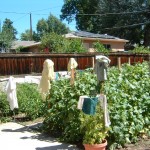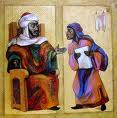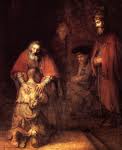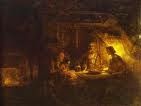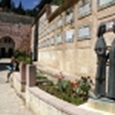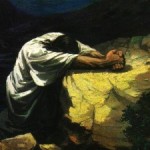Twenty-sixth Sunday – Ordinary Time Cycle C
Reflecting on Luke 16:19-31
As I read this story today about starving Lazarus and well-fed Dives, I stop and look out our window. Rows and rows of luscious greens, bursting with cucumbers and tomatoes and green beans, fill our backyard. How, I wonder for the millionth time, could Lazarus have ever been hungry?
Two years ago we gave our prickly, neglected backyard into the care of an urban gardening co-op called Farmyard. Then we sat back and watched these talented, hard-working young people turn our little yard into the Garden of Eden. This is the season when God must love to say, “See what I can do? The earth is mine, and all the fullness thereof” (Ps. 24:1).
I confess that until two years ago I never noticed where food came from. And now, one hundred people are eating from the riches of the long-neglected soil just outside our window! But, since God is so unbelievably generous, why are there still hungry people all over the globe? For that matter, why was Lazarus hungry in the very same city where Dives was over-fed? Maybe one answer is found inside the Gospel, where Dives, the former rich man who is now in torment, still thinks of Lazarus as his inferior, one whom God should command down to his netherland to cool his burning tongue with water. Ha! We can imagine Lazarus’ response: “Not ‘til hell freezes over.”
The seeds of entitlement, class distinction, geographic advantage are buried right there in the story, waiting for us to notice them and be converted once again to the new heaven and earth that the God of the harvest demands.
Sharing God’s Word at Home:
In what ways are you partnering with God to feed the world?
What would YOU like to say about this question, or today’s readings, or any of the columns from the past year? The sacred conversations are setting a Pentecost fire! Register here today and join the conversation.
I have come to light a fire on the earth; how I wish it were already burning (Lk.12:49).

